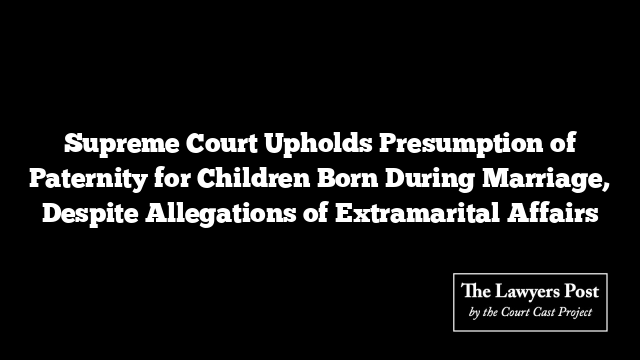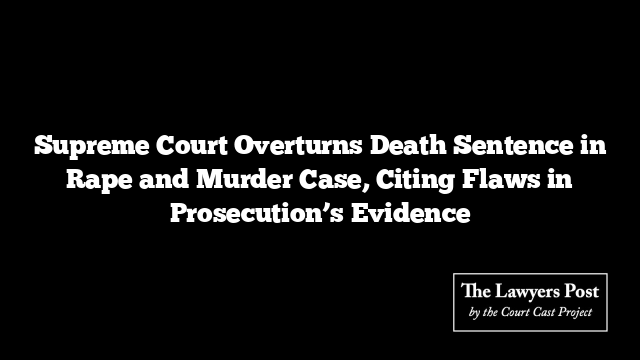The Supreme Court, on January 28, reinforced a critical principle regarding the legitimacy of children born during a marriage. In a landmark ruling, it reaffirmed that the presumption of paternity rests firmly with the husband, even when allegations of the wife’s extramarital relations surface.
The case involved a dispute over the biological father of a child born during a woman’s marriage to one man (RK), despite claims by another man (the Appellant) that he was the child’s biological father. The Appellant sought to challenge the legitimacy of the child in court, but the Supreme Court ruled against this claim, upholding the statutory presumption that the husband is the father of a child born during the marriage, as stipulated under Section 112 of the Indian Evidence Act.
The Court emphasized that legitimacy and paternity are intertwined, rejecting the idea that they should be evaluated separately. It ruled that the legitimacy of the child establishes paternity, making it unnecessary to investigate further unless there is clear evidence of “non-access” between the spouses. In simpler terms, if a married couple had the opportunity to conceive during the relevant time, the child is presumed to be the biological child of the husband.
This legal stance aims to safeguard the integrity of family structures, preventing unnecessary or malicious challenges to a child’s legitimacy. The burden of proof lies with those who dispute this presumption, requiring them to demonstrate that the couple did not have access to one another during the period of conception.
In the case at hand, even though the mother of the child and the Appellant were allegedly involved during the time the child was conceived, the Court ruled that this did not displace the presumption of legitimacy. The fact that the husband and wife had been living together as a married couple throughout the relevant period was sufficient to uphold the presumption of paternity.
The ruling clarified that simultaneous access by other individuals does not invalidate the presumption of legitimacy, and such claims cannot be used to disprove paternity without clear, incontrovertible evidence of non-access.
The case also highlighted the importance of maintaining privacy rights, as the Appellant contested the demand for a DNA test, arguing it would violate his rights unless there was a strong prima facie case. Ultimately, the Supreme Court sided with the principle of marital fidelity and the legal presumption of paternity, allowing the appeal to be dismissed.





